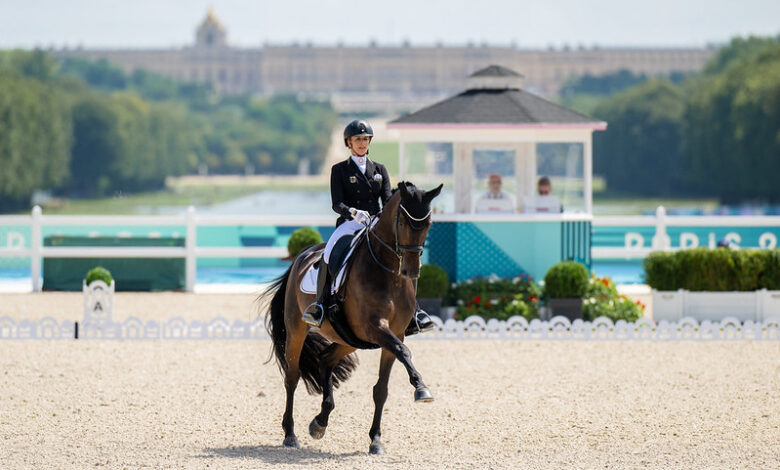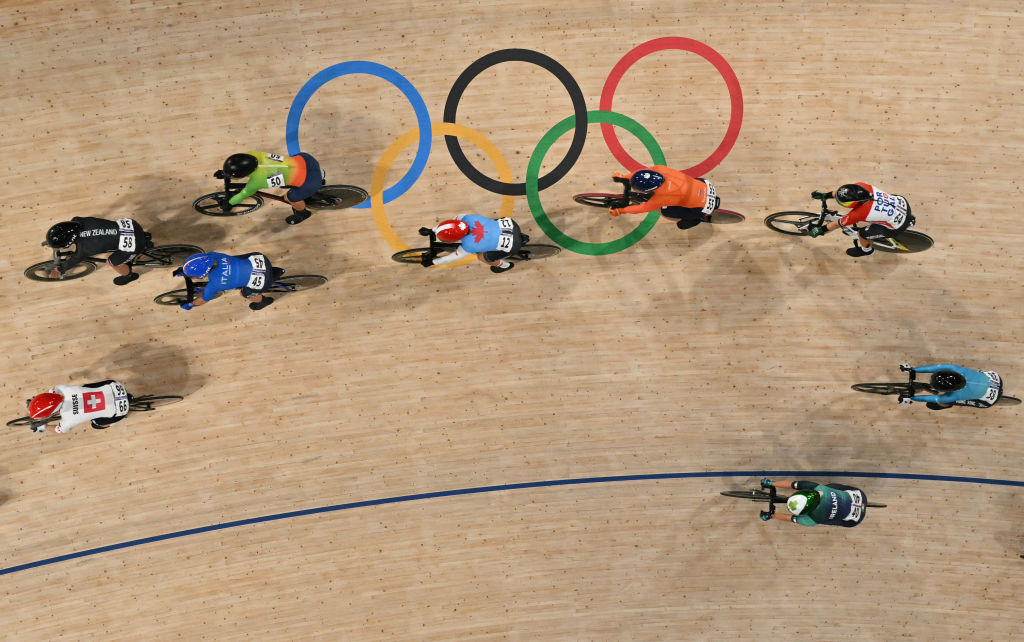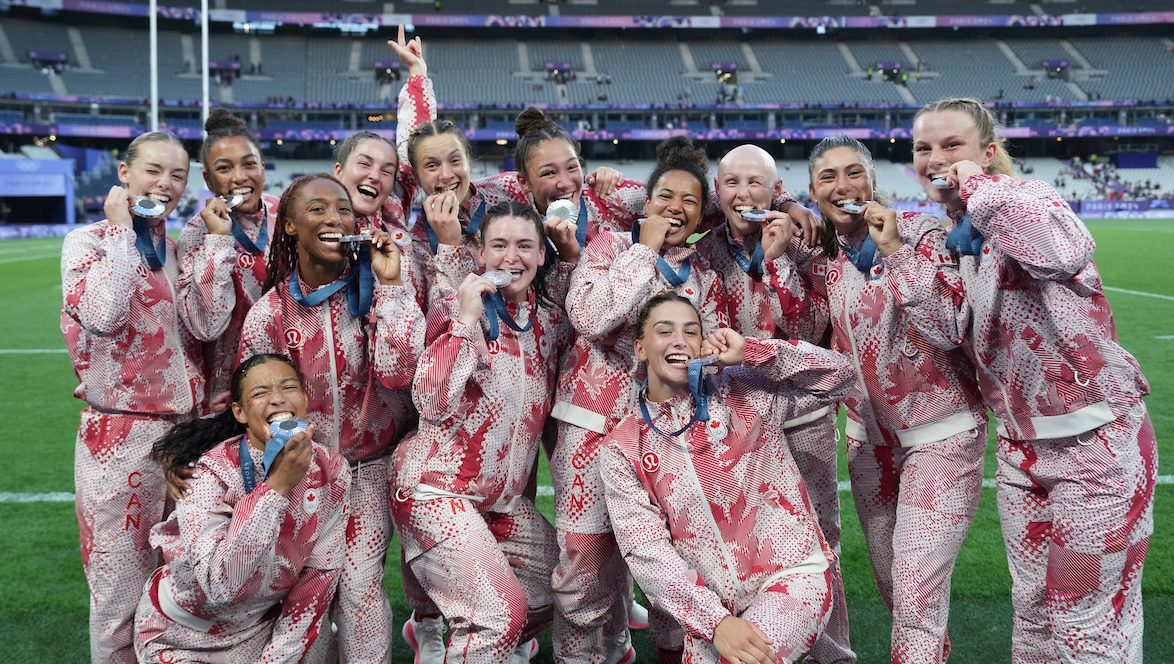Athletics - The track is purple. It's much-discussed but I like it; it is apparently a nod to the lavender fields just outside Paris and why not?
At the beginning of each day's events, someone comes out and bangs a stick three times. Apparently it is at the start of every event (for example, Billie Jean King did the honours for the tennis at Roland Garos), but I have only noticed it at the athletics so far. The stick is called a brigadier and it is banged three times - 'les trois coups' - to call for silence and bring the crowd to attention.
It has been introduced to these Games, but it's a tradition that has been used in French performances for years. Some scholars say les trois coups harkens back to France's first professional theatre, during the Middle Ages, when it was said to evoke religious symbolism - the three blows representing the Holy Trinity. Paul Gousset, a former technical director of the Royal Opera of Versailles, has explained the use of the three blows before a stage play "as signalling a final check that all was in readiness to begin the production." That series of blows was meant to communicate, not to the audience but to the backstage crew: "The head technicians above the stage, below it and on the opposite side to the brigadier, would each give a single blow to show that their area was ready to proceed."
A brigadier may be the one who commands a military brigade, but, according to Gousset, "does not a stage manager lead his theatre brigade?" Either way, this iteration is meant to bring France's passion for theatre together with sport and to tell the crowd they are about to witness something great. Sport is drama: I've always said so.
Femke Bol is outstanding in the final of the Mixed 4 x 400m, taking her team from fourth to first in the home finish, with USA in silver and GBR in bronze. In the Women's 100m final Julien Alfred wins St Lucia's first ever Olympic gold medal in the pouring rain and she is justifiably elated. The USA are second and third (GBR is fourth) and there are some ridiculous nails on display.
100m runners are such posers - they primp and pose as they are announced onto the track, and then they are made to stand around and wait for ages. In the Men's 100m all of the athletes finish under 10 seconds without wind assistance (for the first time) with first and second (Noah Lyles USA and Kishane Thompson JAM) both recording a time of 9.79 seconds.
A brilliant run with a solid finish from Keely Hodgkinson secures the gold medal for GBR in the Women's 800m (ETH silver, KEN bronze). In the Women's 5000m there is much bustling, grabbing, tripping and jostling between Gudaf Tsegay (ETH) and Faith Kipyegon (KEN). Beatrice Chebet (KEN) stays out of it and comes through to finish with gold. Kipyegon is initially disqualified, but then reinstated to claim silver, and Sifan Hassan (NED) takes bronze. Siffan Hassan later wins the women's marathon.
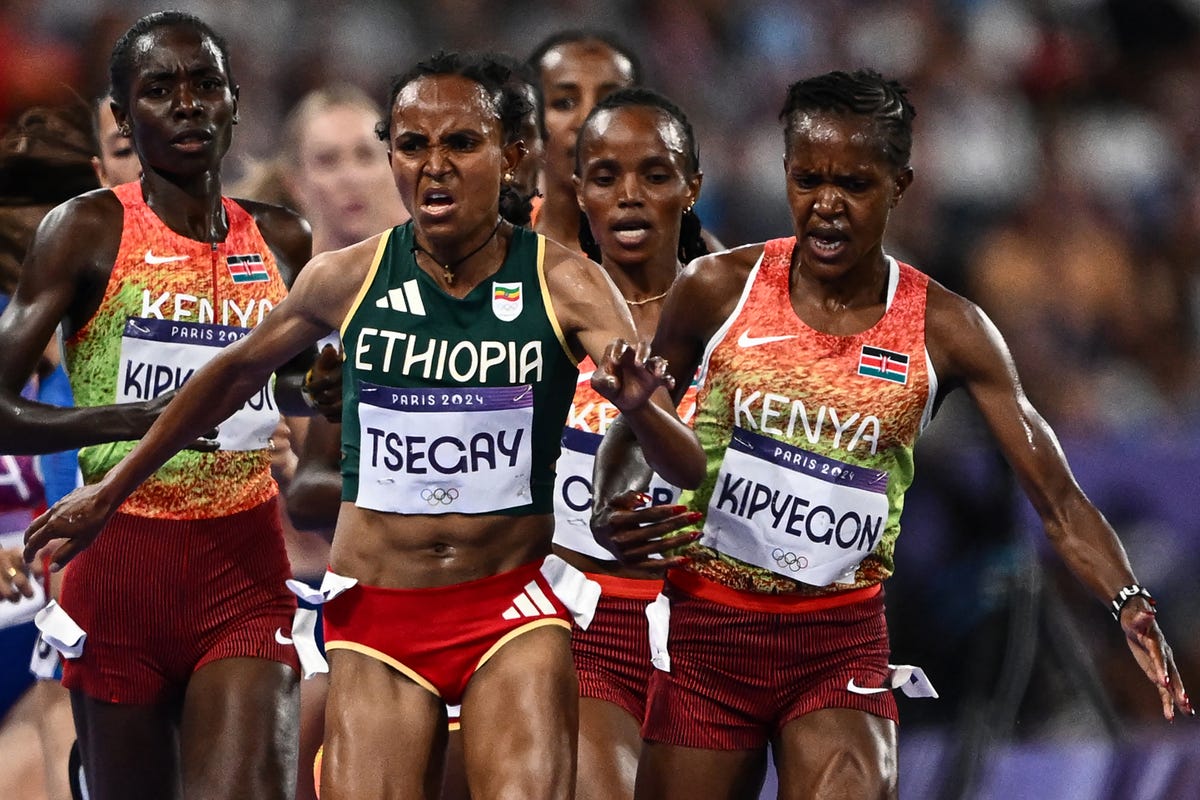
For the Men's 1500m final they are made to come out at the bend and then jog down the 100m to the start - aren't they already doing enough? Jakob Ingetbrigsten (NOR) is covered in doodles as though he has rolled in something and forgotten to wash it off. Josh Kerr is smiling on the start line and, despite the blistering pace right from the start, he's still smiling at the finish when he gets second to Cole Hocker (USA). Hocker is boxed in a bit but he drives through to the finish, which is a cue for the American commentators to be even more annoying as Yared Nuguse (USA) gets third as well and they prattle on 'Way to go - we are proud of you" as if they had anything to do with it.
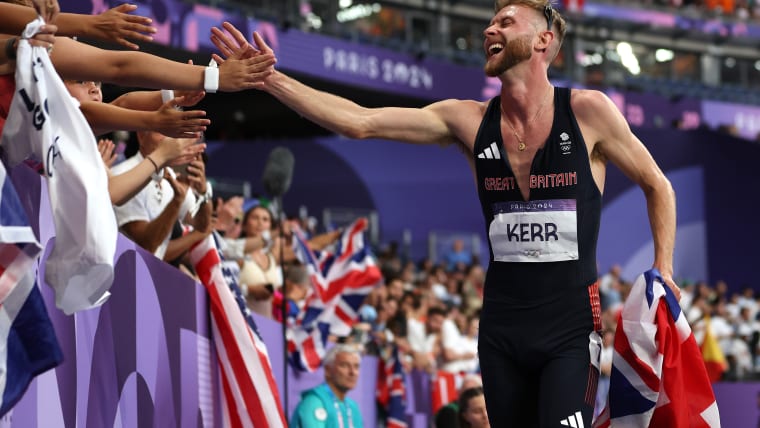
In the Women's Steeplechase final a bloke walks past the start line with a green post-it note - I have no idea what that's about. Peruth Chemutai (UGA) has a very odd hurdling style which looks more like a side box jump than a hurdle in which she jumps with both feet at the same time, but it works for her as she gets silver; although she seems disappointed by the result, it is a new national record. Alice Finot in fourth sets a new European record, and a national record also goes to Elizabeth Bird for GBR in seventh position. Winfred Yavi (BRN) takes gold (Faith Cherotic, KEN is third) and goes to ring the bell to celebrate but has barely enough strength left to make it sound.

In the Men's, Soufiane El Bakkali (MAR) defends his Tokyo Olympic Championship to take gold, Kenneth Rooks (USA) shows grit and determination with an unexpected push to take silver and Abraham Kibiwat (KEN) is the third-placed finisher. There is an horrific incident when Lamecha Girma (ETH), the world record holder, hits the third-to-last barrier and cracks his head - he is stretchered off, and thankfully, we later learn that he recovers consciousness and suffers no lasting effects. The Women's 200m is close: Gabriel Thomas (USA) wins it, Julien Alfred (LCA) gets a silver to add to her gold for the 100m, and then there are four athletes in a photo-finish for bronze: Brittany Brown (USA), who takes it; Dina Asher-Smith (GBR); Daryll Neita (USA); Favour Ofili (NGR) - they are given time differences of 0.04 of a second.
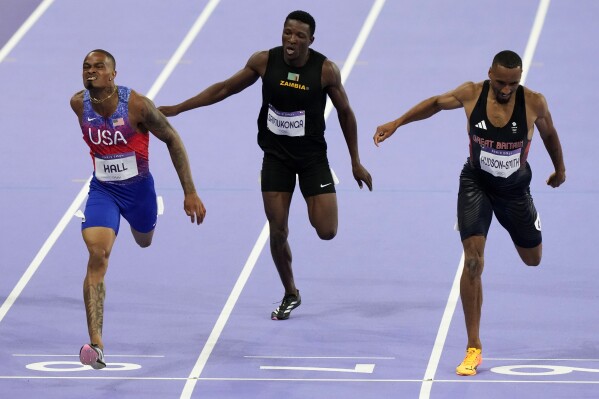
In the Men's 400m, Matthew Hudson-Smith (GBR) is so focussed on his own line that he doesn't see Quincey Hall (USA) stealing it on the line. It is a fantastic race with super-fast times and intriguingly different styles (Muzala Samukonga ZAM got bronze) from the super fluid movement of Hudson-Smith to the grimacing flailing-limb action of Hall - it's not pretty but you do whatever works, so I believe. And finally, I leave you with Canada; their medal haul may be their second best ever (after the boycotted 1984 Summer Olympics), but they definitely have the worst strip in the stadium.


